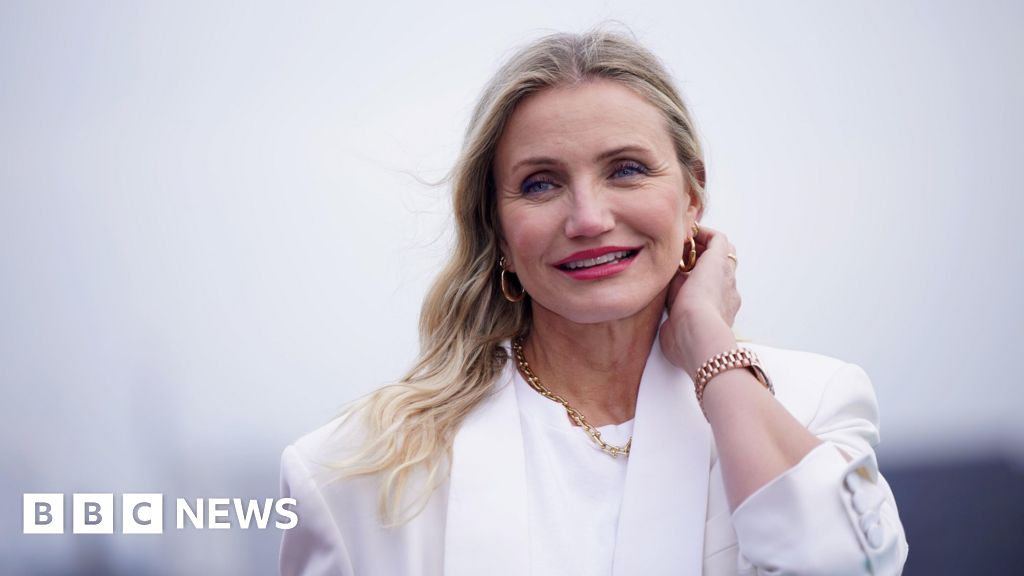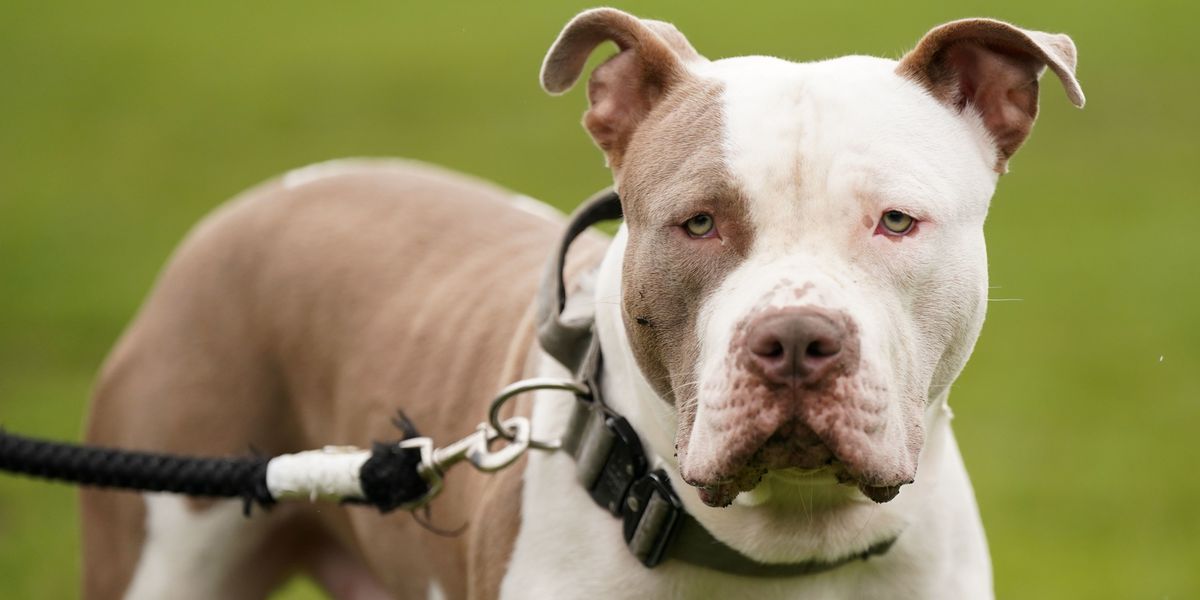
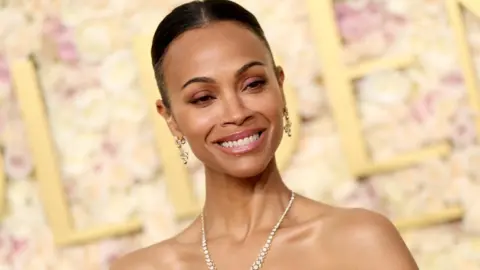 Getty Images
Getty Images
Zoe Saldaña is one of the frontrunners in the supporting actress race for her role in Emilia Pérez
The Bafta nominations will be announced on Wednesday, the latest milestone in an unpredictable awards season which has thrown up several surprises.
The British Academy's shortlists are likely to be a strong Oscars indicator. Last year, the winners of the top six categories matched up perfectly between the two ceremonies.
The nominations follow last week's Golden Globe Awards, which saw Spanish-language musical Emilia Pérez take home the most prizes, and Demi Moore boost her chances in the best actress race for body horror The Substance.
The Bafta Film Awards, hosted by David Tennant, will take place on 16 February at London's Royal Festival Hall.
There is currently no consensus on what will ultimately win best picture at this year's Oscars, which take place in Los Angeles on 2 March.
The Brutalist, Emilia Pérez, Anora, Conclave and Wicked have been tipped by different pundits for the top prize. All five currently have a feasible path to victory.
Bafta's shortlists come a week after the Screen Actors Guild (SAG) nominations, which saw a strong showing for Wicked and a surprise nod for Pamela Anderson for her role as an ageing Las Vegas performer in The Last Showgirl.

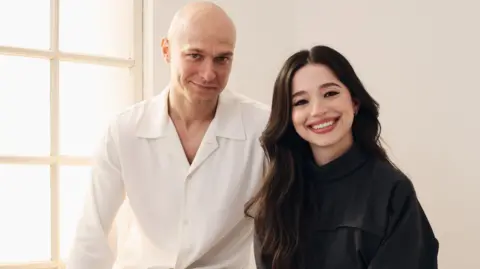 Getty Images
Getty Images
Anora stars Yura Borisov (left) and Mikey Madison are strong contenders for best supporting actor and best actress respectively
The British Academy's longlists, from which the nominees will be selected, were announced earlier this month.
They included most of this year's frontrunners but with a few notable omissions, such as Angelina Jolie and Golden Globe winner Fernanda Torres. Paddington in Peru failed to make the new children's and family film category.
But the fact the longlists have already been released doesn't mean there won't be surprises when the final nominations are announced.
Film frontrunners

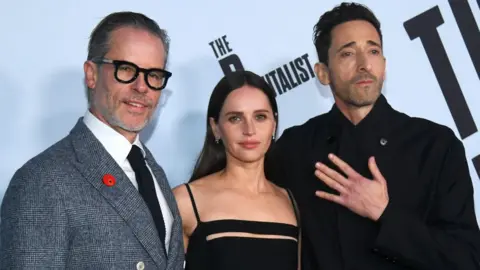 Getty Images
Getty Images
Guy Pearce, Felicity Jones and Adrien Brody could all score Bafta nominations for The Brutalist
Emilia Pérez, a Spanish-language musical about a Mexican cartel leader who leaves the world of crime to live a new live as a trans woman, is the frontrunner at Bafta after scoring the most longlist mentions.
It was closely followed by Conclave, the adaptation of Robert Harris's novel about a gossipy and scheming group of cardinals who gather in Rome to elect a new Pope, and A Complete Unknown, which follows Bob Dylan's rise to fame in the 1960s.
The Brutalist, about a Hungarian architect who is hired by a wealthy American after World War Two, and The Substance, which sees a woman take a black-market drug to create a younger and more beautiful version of herself, also featured heavily in the longlists.
They were joined by blockbusters Wicked, the origin story of Elphaba from The Wizard of Oz, and the sandy sci-fi sequel Dune: Part Two.
Anora, which follows the whirlwind romance of a young couple who meet in a strip club, and Gladiator II, about the grandson of Rome's former emperor being forced into slavery, also chalked up several appearances on the longlists.
Possible surprises

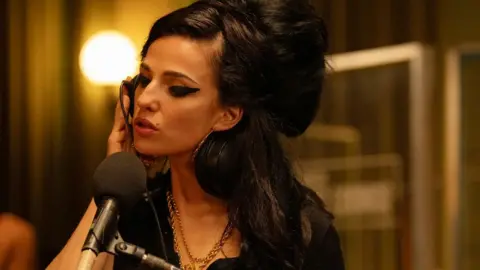 StudioCanal
StudioCanal
Back to Black star Marisa Abela is not an Oscars favourite, but did make the Bafta longlist
There are six nomination slots available in every acting category at the Baftas, one more than the Oscars, which means there is extra room for some fun surprises.
Frontrunners in the best actress race who have a strong chance at Bafta include Demi Moore (The Substance) for her role as a TV aerobics instructor whose relevance is fading, and Karla Sofía Gascón (Emilia Pérez) for playing a newly transitioned woman who used to be a drug baron.
The other dead-certs are Cynthia Erivo (Wicked) for her role as Elphaba, the Wicked Witch of the West, and Mikey Madison (Anora), for playing a New York stripper who falls for the son of a wealthy Russian.
But there's still a chance of a nomination for longlisters such as Marianne Jean-Baptiste (Hard Truths), for her performance as an irritable woman struggling with depression, and Saoirse Ronan (The Outrun) for playing a young alcoholic who returns to Scotland.
Kate Winslet (Lee) could also make it into the category for her role as journalist Lee Miller, as could Amy Adams (Nightbitch) and Nicole Kidman (Babygirl). A nomination for Marisa Abela, for Amy Winehouse biopic Back to Black, would be a particular surprise.
Meanwhile, the best actor category is widely seen as fairly locked down by contenders such as Adrien Brody (The Brutalist) for his role as an architect from Budapest building a new life in the US, and Timothée Chalamet (A Complete Unknown) for his portrayal of a young Bob Dylan and the conflict between his love of folk music and rock'n'roll.

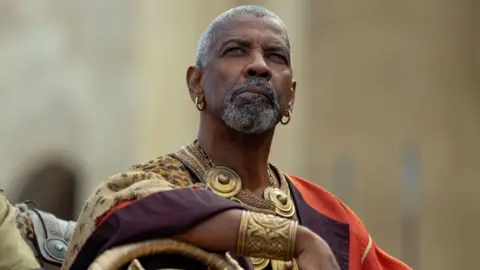 Paramount
Paramount
Denzel Washington could score his first ever Bafta nomination for Gladiator II
Colman Domingo (Sing Sing), could be recognised for playing a prison inmate who enrols in a performing arts programme, while Sebastian Stan (The Apprentice) may be nominated for portraying Donald Trump in his early years as a real estate tycoon.
British frontrunners include Daniel Craig (Queer), who plays a gay man who ventures into the jungle in search of a plant with telepathic qualities, and Ralph Fiennes (Conclave), a cardinal who oversees the race to elect a new Pope.
But don't bet against Bafta also getting behind one or two outsiders such as Hugh Grant (Heretic), Dev Patel (Monkey Man), Kingsley Ben Adir (Bob Marley: One Love) and Jude Law (Firebrand). All are British, and if any of them were going to spring a surprise nomination, the Baftas would be the place it would happen.
The supporting categories, meanwhile, are likely to feature frontrunners such as Zoe Saldaña (Emilia Pérez), Ariana Grande (Wicked), Kieran Culkin (A Real Pain) and Yura Borisov (Anora).
But a particular focus of the supporting actor race is whether Denzel Washington (Gladiator II) will be nominated. Despite a decades-long career and nine Oscar nods for acting (including two wins), Washington has never been nominated for a Bafta.
Voting changes

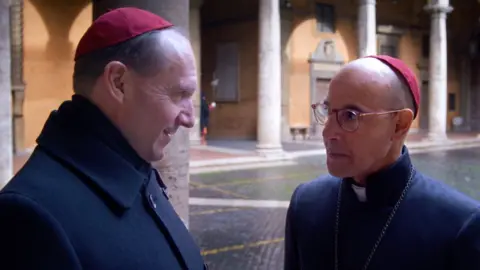 Focus Features
Focus Features
Pope selection drama Conclave, starring Ralph Fiennes and Stanley Tucci, featured heavily in the Bafta longlists
A few years ago, Bafta altered the voting system in some of its major categories in an effort to increase diversity.
It came after no ethnic minority actors were nominated in 2020, with one white actress, Margot Robbie, even being nominated twice for two different movies.
The jury system introduced the following year meant members' votes only determined two of the six slots in the acting categories, while juries decided the other four.
The 2021 shortlists were certainly more diverse as a result, but they were also wildly out of step with the rest of awards season (although the eventual winners broadly matched up with the Oscars).
Bafta kept using the jury system over the following years, although the number of places determined by juries reduced to three.
This year, however, things have changed.
Although juries helped compile this year's longlists, the final nominations for most of the major categories such as the acting prizes are now entirely determined by Bafta members.
As a result, the nominations are more likely to resemble those of other ceremonies, with fewer outliers making the shortlists than in recent years.
The Bafta nominations will be announced by Mia McKenna Bruce and Will Sharpe from Bafta's headquarters in central London at 12:00 GMT.

 By BBC (Entertainment) | Created at 2025-01-14 20:49:37 | Updated at 2025-01-18 04:51:55
3 days ago
By BBC (Entertainment) | Created at 2025-01-14 20:49:37 | Updated at 2025-01-18 04:51:55
3 days ago

